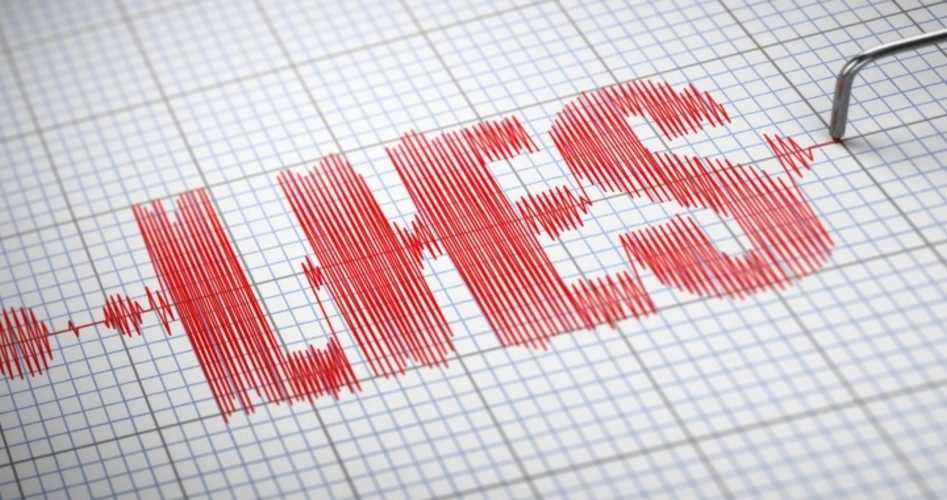
An article in the New York Times for January 23 carried an editorialized headline: “Trump Repeats Lie About Popular Vote in Meeting With Lawmakers.” (Not “Trump Repeats Assertion” or “Trump Repeats Claim,” but “Trump Repeats Lie.” The article was not found on the opinion page of the newspaper’s print edition, but on page A1.)
Reading very much like an opinion piece, the Times article stated: “President Trump used his first official meeting with congressional leaders on Monday to falsely claim that millions of unauthorized immigrants had robbed him of a popular vote majority, a return to his obsession with the election’s results even as he seeks support for his legislative agenda.”
The Times apparently justified its branding of Trump’s assertion that millions of votes cast by illegal aliens may have cost him the popular vote as a lie on its own assertion that the claim “has been judged untrue by numerous [unnamed] fact-checkers.”
The article also threw in a little armchair amateur psychoanalysis by continuing, “Mr. Trump appears to remain concerned that the public will view his victory — and his entire presidency — as illegitimate if he does not repeatedly challenge the idea that Americans were deeply divided about sending him to the White House to succeed President Barack Obama.”
The very idea that Trump would be concerned that “the public” (unless one considers the hoards that recently descended on Washington to engage in mindless rioting to be “the public”) would view his presidency as illegitimate — when the election has already passed every constitutional test — strains credibility. The Times article beat a dead horse by reminding readers that Trump received 304 electoral votes to capture the White House, but fell almost three million votes short of Hillary Clinton in the popular vote.
To which we might ask: So what?
This was not the first time a president was elected by winning the electoral college vote but losing the popular vote. It happened previously in 1824, when Andrew Jackson won the popular vote and a plurality of the electoral college vote, but since Jackson failed to win a majority of electoral votes, the House of Representatives (as the Constitution prescribes) chose John Quincy Adams as president. In 1876, Samuel J. Tilden won the popular vote but Rutherford B. Hayes won the election. In 1888, Grover Cleveland won the popular vote but Benjamin Harrison won the election, and in 2000 Al Gore won the popular vote but George W. Bush won the election after a recount gave him a very slim victory to win Florida’s electoral votes.
After a joint session of Congress counted the Electoral College votes and certified them on January 6, no one of consequence seriously questioned the “legitimacy” of Trump’s victory.
The articles in the Times and New York magazine (which cited the Washington Post) reported that during a meeting with congressional leaders at the White House, Trump said that he would have won the popular vote if not for an estimated three to five million votes cast by illegal aliens who should not have voted. The Washington Post reported that Trump’s statement “was confirmed by a third person familiar with the meeting.”
Last November, shortly after the election, Trump had tweeted: “In addition to winning the Electoral College in a landslide, I won the popular vote if you deduct the millions of people who voted illegally.”
Whether Trump’s statements are verifiable or not has no bearing at all on the presidential election of 2016. No one disputes that Trump received 304 electoral votes and was legitimately elected president. At this point in our nation’s history, any argument concerning how many votes were cast illegally is purely academic. Since no official investigation or challenge can change the outcome of the election, there is little incentive to conduct one. And without such an investigation, it is unlikely that the number of votes cast legally or illegally will ever be known with certainty.
Nevertheless, the likelihood of millions of votes being cast in the presidential election was verifiable. As we noted in our article last November 14, just six days after the election: “Gregg Phillips, spokesman for the VoteFraud.org organization, recently tweeted that after completing an analysis of a database of 180 million voter registrations, ‘We have verified more than three million votes cast by non-citizens.’”
In that article, we also wrote why the matter of vote fraud is important, even if it apparently did not affect the outcome of the election:
While this may seem like a moot point, since Republican nominee Donald Trump has already accumulated more than enough electoral votes to win the election and was only a tiny fraction behind Democratic nominee Hillary Clinton in the popular vote count, there are reasons why the charge of vote fraud is important and, if found to be credible, should be exposed.
For one thing, if allowed to go unchallenged, vote fraud by noncitizens not entitled to cast votes could perpetuate itself and affect the outcome of future elections. The integrity of our voting system is at stake.
Second, many of the violent protests that have taken place across our nation since Trump’s victory have been fueled, in part, by the claim that Trump’s victory was not “democratic,” since his share of the popular vote was smaller than Clinton’s. Although such objections fly in the face of history and the Constitution, the psychology behind them still exists. If the charges made by VoteFraud.org hold up, there is a strong possibility that Trump may have won the popular vote after all.
As we saw watching Trump’s inauguration in Washington, those violent protests engaged in by the anti-Trump radicals did not abate, but only increased in intensity. While they may have gone on even if the official count gave the popular vote to Trump, the perception on the part of Clinton’s supporters that they had somehow been “robbed” (despite what the Constitution says) certainly added fuel to the fire.
In another article last December, we reported on how the issuance of driver’s licenses to illegal aliens increased the possibility that those same aliens might vote. Since the lion’s share of the popular vote majority that Clinton received came from California, it is significant that our article focused on California’s policy of granting driver’s license to such aliens.
We cited a December 28 report in San Jose’s Mercury News noting that two years after the implementation of AB 60, a controversial law allowing illegal aliens to obtain driver’s licenses in California, an estimated 806,000 illegal residents had received driver’s licenses, according to the latest Department of Motor Vehicles (DMV) statistics.
The day after that bill was signed, a reporter for the Washington Times noted that the under the new law, all Californians would automatically be registered to vote when they obtained or renewed their driver’s licenses at the DMV, instead of being required to fill out a form.
The Times report cited the anti-vote fraud groups True the Vote and the Election Integrity Project of California, which had urged Brown to veto the bill, saying it would lead to “‘state sanctioned’ voter fraud” and pointing out that the legislation exempts from penalties ineligible voters who wind up being registered.
“This bill is terrible. It makes an already bad situation much, much worse,” True the Vote founder Catherine Engelbrecht said in a statement.
Engelbrecht said California’s registration databases “lack the necessary safeguards to keep noncitizens off the voter rolls.”
The report also quoted Election Integrity Project of California President Linda Paine, who said in a statement that the New Motor Voter Act “will effectively change the form of governance in California from a Republic whose elected officials are determined by United States citizens and will guarantee that noncitizens will participate in all California elections going forward.”
During a discussion about California’s New Motor Voter Act on the October 13, 2015 edition of Fox News’ Fox & Friends, the show’s senior judicial analyst Andrew Napolitano predicted, “the state is going to provide shelter for illegals to vote.”
When Fox & Friends’ host Steve Doocy questioned whether California could extend the right to vote to federal as well as state elections, since it is illegal for noncitizens to vote in federal elections, Napolitano replied:
Yes, it is [illegal]. But there’s really no way to monitor it. So if you are an illegal alien in California, get a driver’s license, register to vote, you can vote in local, state, and federal elections in California and those votes count….
It’s almost impossible to monitor this if the state is going to provide shelter for illegals to vote.
After which Doocy summed things up by saying: “And so that’s what is going to happen out in California.”
It might have been prudent for the New York Times to have taken a closer look at what has been happening in California before automatically branding Trump’s claim that millions of illegal aliens voted there as a “lie.” At the very least, his assertion is worthy of further exploration.
Related articles:
Vote Fraud Monitoring Group Says Three Million Noncitizens Voted in Presidential Election
Vote Fraud? More Votes Than Voters in One-third of Detroit Precincts
Democrat Operative Admits: We’ve Been Rigging Elections “for 50 Years”



